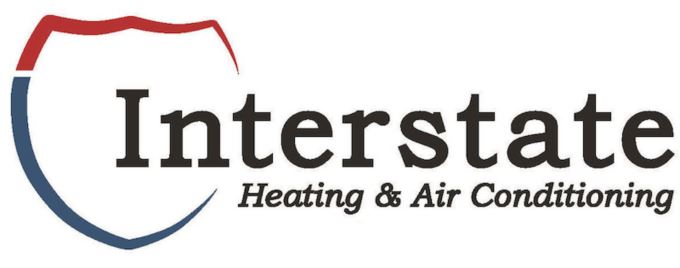
With ample maintenance, your air conditioner can run for 15 years or more. But even the most well-maintained air conditioner will need to be replaced at some point.
When you’re beginning to plan for air conditioning installation in Omaha, we realize that cost tops your list of questions. The good news is that installing a new air conditioner might be more affordable than you are aware, because of rebates, our special offers and financing for qualified customers. You’ll also enjoy improved energy efficiency, which will typically pay off over the years through lower electrical bills.
Here’s what to prepare for when you’re installing a new air conditioner.
The Best Time to Consider Replacing Your Air Conditioner
Knowing when to repair or replace your air conditioner may be difficult. Here’s what we suggest.
Replace
- Your air conditioner is older than 10 years old. While some may work longer, the majority of air conditioners work for around 15 years with routine maintenance. We suggest prepping for air conditioning replacement around the 10-year age. Even if you replace it when it’s only a decade old, the U.S. Department of Energy says this tweak could save you 20-40% on cooling bills.
- You’ve avoided regular maintenance for too long. Just like a car, your cooling system requires regular air conditioning maintenance. Skipping this critical service can cause lower efficiency, more persistent repairs and even a decreased life span.
- Your air conditioner has to have frequent or expensive repairs. Needing air conditioning repair is frequently the consequence of skipping tune-ups But as your air conditioner gets older it’s more likely to experience a big problem. When repairs are higher than half the cost of a new air conditioner, it’s time to get a new one.
- Your residence feels unpleasant. If your residence feels too sticky or you’re having hot and cold spots in specific spaces, your air conditioner might be having difficulty keeping up. This is a hint it’s time to replace it.
- Your energy bills are costly. Your air conditioner loses efficiency as it ages. As a result, it might need to run more frequently or longer to keep your residence at your desired temperature. Newer air conditioners have the most up-to-date energy-efficient technology to keep your home comfy and energy costs reasonable.
- Your air conditioner has R-22 refrigerant. If your air conditioner was replaced before 2010, there’s a high likelihood it uses Freon. Also known as R-22, this refrigerant is no longer being manufactured due to its bad effects on the environment. You can keep using your air conditioner, but if it were to have a refrigerant leak, repairing that would be very expensive. This is due to the fact R-22 is only available in limited, recycled amounts.
Repair
- Your air conditioner is no more than 10 years old. If your air conditioner is newer, it’s best to repair it.
- Repairs are infrequent or inexpensive. The best way to avoid unanticipated repairs is to have annual work completed. But when repairs are only needed intermittently or are economical, repair your air conditioner.
- Your air conditioner is under warranty. Most air conditioners come with a 5- to 10-year limited warranty that often covers the compressor. Your exact warranty length is up to your manufacturer, but it provides valuable protection in the event of a big failure. If your air conditioner is under warranty, we advise fixing it.
Average Air Conditioner Cost
Many homeowners spend around $4,631 on a new air conditioner, based on national averages compiled by HomeGuide. Air conditioner cost averages often range from $3,350 to $5,912, but your exact cost {might|could|may] be different.
There are a couple of factors that influence your total cost, like:
- The air conditioner model you select, as more energy-efficient ones are pricier.
- The size your space needs.
- If you need to install new ductwork, which can happen if your ductwork is dated or damaged.
We provide free estimates at Interstate Heating & Air Conditioning so you can be sure you’re getting a great deal. And with our complete range of air conditioners, there’s an energy-efficient model that accommodates just about any budget.
Air Conditioner Size
Air conditioner size is critical. A system that’s undersized will have difficulty keeping your house cool. And one that’s too large may turn on and off too often, or short cycle. This behavior can drive up your energy costs and wear your air conditioner out faster. This might also lead to temperature instabilities and make your home feel less cool.
At Interstate Heating & Air Conditioning, our technicians have many years of experience in correctly sizing and installing the right air conditioner for your home. The size you need depends on how big your home is, along with a couple other things. Some of the most typical sizes include:
- 2 ton, which cools up to 1,000 square feet
- 3 ton, which cools up to 1,600 square feet
- 4 ton, which cools up to 1,900 square feet
- 5 ton, which cools more than 2,000 square feet
Other considerations that can influence air conditioner size are:
- The weather in Omaha.
- Ductwork quality and age.
- How many windows your house has and the style, because expansive or picture windows may be less efficient.
- If your home receives more sun or shade.
- Insulation quality and thickness.
- How many people are in your household.
Seasonal Energy Efficiency Ratings
Your air conditioner’s efficiency is impacted by its SEER, or Seasonal Energy Efficiency Rating. This rating measures how efficiently it uses electricity to create cooling. The bigger the number, the more efficient the air conditioner is.
When you’re buying a new air conditioner, it’s crucial to know:
- Old air conditioners are ranked around 8-9 SEER.
- Modern air conditioners start at 13 SEER. Ones installed in the southwest and southeast must be no less than 14 SEER due to U.S. Department of Energy regulations. As of 2017, these SEER rating requirements have saved homeowners trillions of dollars.
- ENERGY STAR®-certified air conditioners begin at 14.5 SEER.
- Higher SEER-rated air conditioners have more features to help you save more. These features may include variable-speed cooling. Instead of running at 100% constantly, these air conditioners can adjust blower speeds customized for your cooling requirements. This creates quieter and more energy-efficient air conditioning. While an air conditioner with a better SEER rating is usually pricier, it may be eligible for extra rebates. And the energy savings over its lifetime could help it pay for itself.
Start Your Air Conditioning Installation with Interstate Heating & Air Conditioning Today
When you’re preparing for air conditioning replacement, the company who hooks it up is just as essential as the model you select. Interstate Heating & Air Conditioning is one of the number one names for air conditioning installation in Omaha. From helping you find the ideal solution for your home to going over financing options to professional installation, collaborating with our pros is a breeze. Call us at 402-509-5940 to start today!
